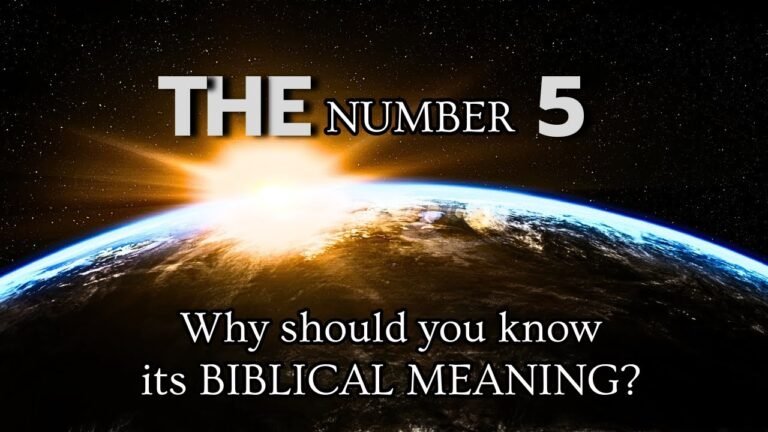Understanding the Meaning of Maranatha
In a world filled with diverse languages and cultures, the term Maranatha stands out as a powerful expression with deep spiritual significance. Often translated as Come, Lord or The Lord has come, this ancient Aramaic phrase encapsulates a longing for divine presence and hope. Understanding what Maranatha means not only enriches our appreciation for its historical context but also invites reflection on its relevance in today’s faith journeys. Join us as we explore the origins, meanings, and contemporary applications of this profound declaration.
What is the biblical meaning of Maranatha?
Maranatha, a term derived from the Aramaic language, carries profound biblical significance as it translates to “our Lord comes” or “our Lord is coming.” This phrase is found in the New Testament, specifically in 1 Corinthians 16:22, where it serves as a reminder of the anticipated return of Christ. The essence of Maranatha encapsulates both hope and urgency, urging believers to remain vigilant in their faith as they await the Lord’s arrival.
In its deeper interpretation, Maranatha conveys a dual message of expectation and accountability. It emphasizes that the Lord’s coming is not only a promise of salvation but also a call to judgment for those who have disregarded His teachings. This understanding encourages individuals to reflect on their actions and relationship with God, fostering a sense of readiness as they look forward to the fulfillment of His promise.
What is the meaning of Come, Lord Jesus, Maranatha?
The phrase “Come, Lord Jesus, Maranatha” carries profound significance rooted in Aramaic, combining the words “marana” and “tha,” which translate to “the Lord comes” or serve as an imperative call to “Come, Lord!” This expression encapsulates a longing for divine presence and intervention, resonating deeply within Christian theology and liturgy. Its usage reflects a yearning for spiritual fulfillment and the anticipation of Christ’s return.
Notably, Paul the Apostle highlighted this poignant phrase in his First Letter to the Corinthians, specifically in chapter 16, verse 22, where he implores, “Come, Lord!” By invoking “Maranatha,” believers express their hope and expectation for a future where divine grace reigns. This simple yet powerful declaration continues to inspire faith and devotion among Christians, serving as a reminder of the ever-present desire for connection with the divine.
What does the word Maranatha mean in the dictionary?
Maranatha, a powerful invocation found in the New Testament, translates to “O Lord, come.” This phrase encapsulates a deep longing for divine presence and intervention, resonating with believers who seek a connection with the divine. Its use transcends mere words, serving as a heartfelt plea for hope and guidance in times of uncertainty, reminding the faithful of the enduring promise of spiritual fulfillment.
Unlocking the Spiritual Significance of Maranatha
Maranatha, a term derived from Aramaic meaning “Come, Lord,” serves as a profound invitation to divine presence. Its roots in early Christian texts emphasize the longing for a deeper connection with the sacred. This simple yet powerful expression encapsulates the yearning of believers for spiritual renewal and the transformative power of faith in their lives. By uttering “Maranatha,” individuals align themselves with a tradition that transcends time, fostering a sense of community and shared hope.
The significance of Maranatha extends beyond mere words; it embodies a call to action for those seeking to deepen their spiritual journey. By embracing this phrase, individuals are encouraged to cultivate mindfulness and remain attentive to the divine, reminding them of the importance of presence in both prayer and daily life. This practice not only enriches personal faith but also nurtures a collective consciousness, inviting others to join in the pursuit of spiritual awakening.
In a world often fraught with distractions, Maranatha serves as a beacon of hope and a reminder of our shared quest for meaning. It invites believers to reflect on their own spiritual paths and the ways in which they can embody the principles of love, compassion, and unity. By unlocking the spiritual significance of Maranatha, individuals can find solace in their faith and inspire others to seek the divine in their own lives, fostering a greater sense of connection within the broader community.
A Deep Dive into the Origins of Maranatha
Maranatha, a term often associated with Christian eschatology, has rich historical roots that extend far beyond its modern usage. Originating from the Aramaic phrase meaning “Our Lord, come,” it was a call for divine intervention during tumultuous times in early Christianity. This expression encapsulated the yearning of believers for redemption and the return of Christ, reflecting the profound spiritual longing that characterized the early church. Over centuries, Maranatha evolved into a powerful symbol of hope and faith, resonating with communities navigating challenges and seeking solace in their beliefs.
In contemporary contexts, Maranatha has transcended its theological origins, finding its way into music, literature, and even popular culture. Various Christian denominations have adopted the term, infusing it with new meanings while honoring its historical significance. This evolution illustrates how language and expressions can adapt, allowing communities to foster connections and inspire collective faith. Ultimately, Maranatha serves as a timeless reminder of humanity’s quest for divine presence and the enduring power of hope amid life’s uncertainties.
Maranatha: A Call to Anticipate Hope
In a world often overshadowed by uncertainty and despair, the call to “Maranatha” resonates as a beacon of hope. It serves as a reminder to look beyond our immediate challenges and to anticipate a brighter future. This ancient phrase, meaning “Come, Lord,” invites us to embrace a perspective that transcends the mundane, urging us to remain steadfast in our faith and optimism. As we navigate the complexities of our daily lives, the spirit of Maranatha encourages us to cultivate a profound sense of expectation for renewal and transformation.
Each day presents an opportunity to reflect on the promise of hope that Maranatha embodies. By fostering an attitude of anticipation, we can shift our focus from fear to possibility. This mindset not only revitalizes our personal journeys but also empowers us to uplift those around us. Our shared experiences of waiting and longing can become powerful catalysts for connection, as we unite in our collective yearning for a better tomorrow. In this way, the call of Maranatha becomes a transformative force, inspiring us to envision and work towards a future filled with possibility.
As we respond to this call, let us remember that hope is not merely a passive wish but an active pursuit. Embracing the essence of Maranatha compels us to engage with our communities, advocate for justice, and champion love in all its forms. Together, we can create a tapestry of hope that weaves through our lives, illuminating paths for ourselves and others. In this collective journey of anticipation, we not only await the promise of what is to come but also participate in the unfolding of a hopeful reality that is already taking shape around us.
Exploring Maranatha’s Role in Faith and Worship
Maranatha, an Aramaic phrase meaning “Come, Lord,” holds a profound significance in the Christian faith, bridging the gap between anticipation and worship. This invocation encapsulates the yearning for divine presence, inviting believers to cultivate a deeper relationship with God. As a cornerstone of worship, Maranatha serves as a reminder of the hope and urgency that permeate the Christian journey, encouraging congregations to unite in their longing for spiritual fulfillment.
In communal worship settings, Maranatha fosters an atmosphere of expectancy, transforming ordinary services into profound encounters with the divine. The phrase often emerges in prayers and hymns, creating a rhythmic pulse that resonates with the hearts of congregants. This collective expression of faith not only strengthens individual beliefs but also nurtures a sense of community, as participants join together in their heartfelt longing for God’s return and intervention in their lives.
Moreover, Maranatha invites believers to reflect on the transformative power of faith in their daily lives. It challenges them to embody the essence of this prayer by embracing a life of service, compassion, and love. As they await the fulfillment of God’s promises, Christians are encouraged to actively engage in their communities, embodying the hope that Maranatha signifies. In this way, the phrase becomes not just a plea for divine presence, but a call to action that enriches both personal faith and collective worship.
The term Maranatha encapsulates a profound sense of anticipation and hope, reflecting both a call for the Lord’s return and a reminder of the enduring faith within the Christian community. Its rich historical roots and spiritual significance continue to inspire believers, encouraging them to embrace a life of devotion and readiness. As we explore the depths of its meaning, Maranatha serves as a powerful invitation to remain vigilant and united in faith, resonating across generations.







